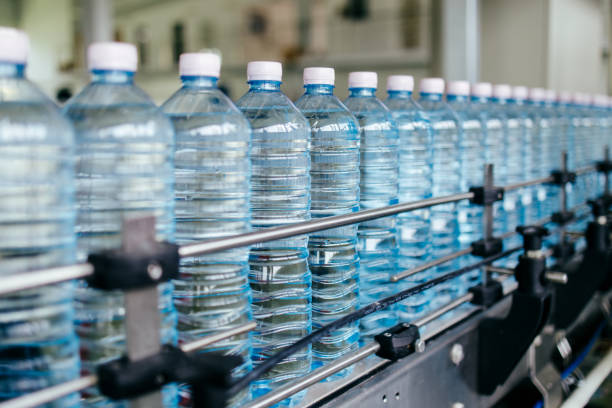The demand for bottled water in Kenya has grown rapidly, driven by population growth, urbanization, and increased health consciousness. Starting a water bottling business in Kenya can be a lucrative venture if done correctly, but it requires careful planning, significant investment, and adherence to strict regulatory requirements. This article provides a comprehensive guide on how to establish a successful water bottling business in Kenya.
Understanding the Water Bottling Industry in Kenya
Kenya’s water bottling industry is competitive, with numerous local and international brands available. However, the market still offers opportunities for new entrants, especially in areas where bottled water demand exceeds supply. The business involves extracting water from a source, purifying it, bottling, labeling, and distributing it to consumers. Key factors like location, quality control, and marketing strategy play a vital role in the success of the business.
Choosing a Water Source
Before you start a water bottling business, you need to identify a reliable and sustainable water source. Common sources include boreholes, springs, and municipal water supplies. It’s crucial to ensure that the water is free from contamination and can be purified to meet the standards set by the Kenya Bureau of Standards (KEBS). Conduct thorough tests to confirm the water’s quality and ensure the supply will meet the demand as your business grows.
Business Registration and Licensing
To operate legally in Kenya, you must first register your business with the relevant authorities. Registering a water bottling business involves the following steps:
- Business Name Registration: This can be done through the eCitizen portal under the Registrar of Companies.
- Licensing from KEBS: KEBS requires that all bottled water products meet certain quality standards. You will need to apply for the Standardization Mark (SM), which certifies that your product meets quality regulations.
- National Environmental Management Authority (NEMA) Approval: You will need to conduct an Environmental Impact Assessment (EIA) and submit it to NEMA for approval. This ensures that your business adheres to environmental regulations.
- County Business Permit: Depending on your location, you will need a business permit from your respective county government.
- Water Abstraction License: If you’re sourcing water from natural springs or boreholes, you will need a water abstraction license from the Water Resources Authority (WRA).
Water Purification and Treatment Process
Water purification is the heart of the water bottling business. The water you source must be treated to remove contaminants and make it safe for consumption. The treatment process typically includes the following stages:
- Sedimentation: Removes suspended solids.
- Filtration: Removes particles and microorganisms.
- Chlorination or Ozonation: Used for disinfection to kill bacteria and viruses.
- Reverse Osmosis: This process removes dissolved salts and impurities, making the water pure and safe.
- UV Sterilization: This step further ensures the safety of the water by eliminating any remaining pathogens.
Investing in high-quality water treatment equipment is essential, as poor water quality can damage your brand reputation and lead to regulatory penalties.
Bottling and Packaging
Once the water is purified, the next step is bottling. You will need automated or semi-automated machines to fill the bottles, seal them, and label them. Ensure the bottles you use are of high quality and food-grade standard. Typically, water is bottled in sizes ranging from 500 ml to 20 liters. Branding and packaging are critical as consumers often make purchasing decisions based on the visual appeal of the product. Invest in designing an attractive label that clearly shows your brand, ingredients, and other regulatory requirements.
Regulatory Requirements and Standards
Adhering to regulations is crucial in the water bottling business in Kenya. Below are some of the key regulatory requirements:
- KEBS Certification: Bottled water must meet the standards set by KEBS (KS EAS 153:2015 for drinking water). This involves regular testing of water quality, labeling compliance, and inspections.
- NEMA Compliance: NEMA requires businesses to follow environmental guidelines and submit reports on how waste, especially plastic, is handled.
- Food and Health Safety Standards: Since water is a consumable product, the facility must adhere to food safety standards set by public health authorities. This includes regular inspection of the bottling plant to ensure hygiene and safety protocols are followed.
Financial Requirements and Capital Investment
Starting a water bottling business requires a significant initial capital investment. You will need funds to purchase equipment such as water purifiers, bottling machines, storage tanks, and vehicles for distribution. The cost of licenses, permits, and registration fees also adds up. Depending on the scale of your business, you may need to secure financing from banks or investors.
Here are some key financial requirements to consider:
- Water treatment and purification systems: Ksh 500,000 to Ksh 2 million
- Bottling machines: Ksh 300,000 to Ksh 1.5 million
- Bottles and packaging materials: Ksh 50,000 to Ksh 200,000 (for initial stock)
- Licensing fees and permits: Varies depending on location and scale of business
- Working capital: For wages, rent, utilities, and marketing
Marketing and Distribution Strategy
For your water bottling business to succeed, you need a solid marketing and distribution plan. Focus on building a strong brand that resonates with consumers. You can market your bottled water through supermarkets, retail outlets, hotels, restaurants, and event planners. Establish partnerships with distributors to ensure that your product reaches a wider audience. You can also leverage online marketing and social media to promote your brand.
Offering promotions, discounts, and loyalty programs can help attract and retain customers. Additionally, ensure you have a reliable distribution network to transport the bottled water to various retailers and consumers.
Challenges and Solutions in the Water Bottling Industry
Like any business, the water bottling industry has its challenges. These may include competition, fluctuating water demand, regulatory hurdles, and environmental concerns regarding plastic waste. To overcome these challenges:
- Innovate with Packaging: Consider offering eco-friendly packaging solutions, such as using biodegradable bottles or incentivizing customers to return used bottles for recycling.
- Product Differentiation: Ensure your product stands out by emphasizing the quality of your water, your environmental practices, and your customer service.
- Stay Compliant: Regularly update your licenses and maintain high standards of hygiene and water quality to avoid fines and reputational damage.
Sustainability and Environmental Considerations
The environmental impact of plastic waste is a major concern in the water bottling industry. It’s essential to adopt eco-friendly practices to reduce your carbon footprint. Some of these practices include:
- Recycling Programs: Encourage customers to return used bottles for recycling. You can partner with local recycling companies to manage the plastic waste.
- Using Sustainable Packaging: Consider using biodegradable bottles or packaging materials to minimize environmental harm.
- Water Conservation: Ensure that your water source is sustainable, and implement water-saving practices in your bottling facility.
Conclusion
Starting a water bottling business in Kenya requires careful planning, adherence to strict regulations, and substantial capital investment. However, with the increasing demand for bottled water, the business has the potential to be highly profitable. By following the steps outlined in this guide and staying compliant with regulatory requirements, you can successfully establish a water bottling business that meets the needs of consumers while contributing to Kenya’s economic growth.





